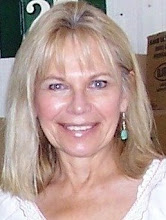Also spelled Werenów, town and folwark on the Błoczanka (Bołotianka) River, a tributary of the Żyżma, Lida district, in the 2nd police precinct, Bieniakonie gmina (11 wiorsts distance), Woronów rural precinct, at 32 wiorsts north of Lida, on the highway to Wilno (59 wiorsts distant) and 20 wiorsts from Ejszyszki.
The town has 42 houses, 18 Orthodox inhabitants, 117 Catholics, 333 Jews, a Catholic parish church, a synagogue, a Jewish house of prayer, 2 tanneries, 12 shops, a postal station, a water mill, markets every Sunday, and fairs four times a year. The obwarzanki [i.e., seeded bread twists, like bagels] baked here are renowned. The folwark has 100 Catholic inhabitants, 18 Evangelical Protestants, 8 Jews, and a brewery. The wooden Catholic parish church, dedicated to the Redeemer [Saviour], has stood here since it was built by Aleksandrowicz in the year 1705. Catholic parish, Raduń deanery, 1,738 faithful.
Within the composition of the rural district come the villages Bojary, Bolcienikiele, Byryły, Kletkienniki, Kodzie, Łazarzyszki, Muchladziszki, Ramuty, Ściłguny, Sztaniszki, Towzginiany, and the szlachta neighborhood Towzginiany; all in all, in the year 1865, 240 revision souls [who were] enfranchised peasants and 9 jednodworce.
Formerly the property of the Gasztołd family, who died out, subsequently of the Scypios, among whom, Jan, castellan of Smolensk, starosta of Lida, endowed a Piarist college and school here before the year 1738. By order of the board of education, these schools were subsequently moved to Lida. At present Woronów belongs to Zarzecki.
(Słownik, v. XIII, p. 955)
Subscribe to:
Post Comments (Atom)










No comments:
Post a Comment